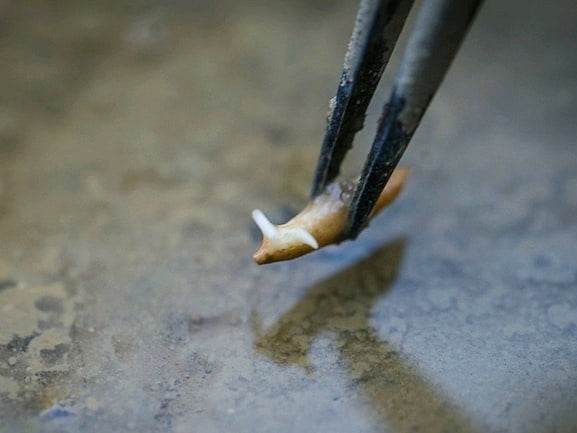China grows rice in space using new zero-gravity laboratory
‘If we want to land on and explore Mars, bringing food from Earth is not enough to suffice for the astronauts,’ says researcher

Rice plants have been cultivated from seeds in space for the first ever time in an experiment that could have major implications for future long-term missions.
Chinese astronauts, known as taikonauts, carried out the experiment onboard the Wentian space laboratory, which was launched into orbit on 24 July and is docked with the core module of the Tiangong space station.
It marks the first time that scientists have attempted to produce the full life cycle of a rice plant in a zero-gravity environment, going from a seed to a mature plant capable of producing its own seeds.
The taikonauts are also experimenting with the plant Arabidopsis thaliana, a member of the mustard family that is often used to study mutations.
“The rice seedlings are growing very well,” Professor Huiqiong Zheng, a researcher at the Centre for Excellence in Molecular Plant Sciences at the Chinese Academy of Sciences, told China Daily.
“We want to investigate how microgravity can affect the plant flowering time on the molecular level and whether it is possible to use the microgravity environment to control the related process.”
Rice is one of the most popular foods on the International Space Station (ISS) and has been a staple for astonauts since the Apollo missions.
Nasa astronauts Neil Armstrong, Michael Collins and Buzz Aldrin ate meals of freeze-dried chicken and rice during the Apollo 11 mission, which saw Aldrin and Armstrong become the first people to walk on the Moon.
Since then, astronauts have relied on food grown and cultivated on Earth, however hopes of longer missions to Mars and beyond may depend on the ability to grow plants and crops in space.
“If we want to land on and explore Mars, bringing food from Earth is not enough to suffice for the astronauts’ long journey and mission in space,” said Professor Zheng.
“We have to find a sustainable food source for long-term space explorations.”
Join our commenting forum
Join thought-provoking conversations, follow other Independent readers and see their replies
Comments
Bookmark popover
Removed from bookmarks